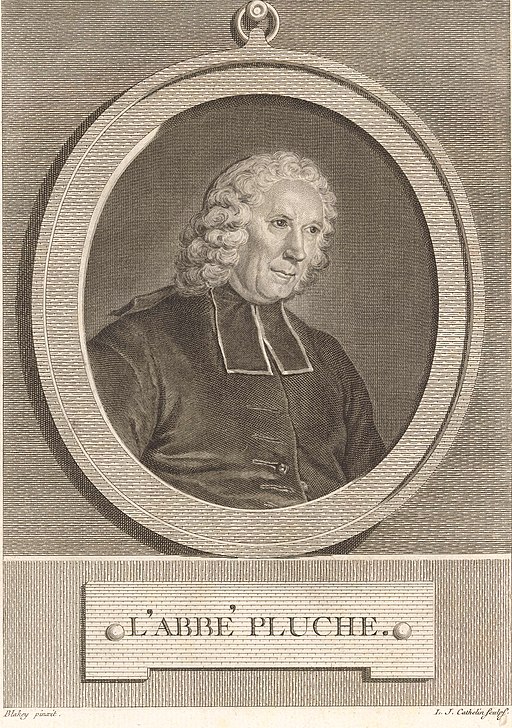
Noël-Antoine Pluche
1688 – 1761
Noël-Antoine Pluche was a professor first of humanities, then of rhetoric in his hometown of Rheims, before taking holy orders. He became notorious for refusing to swear adherence to the bull Unigenitus (1713). His major work, Spectacle de la nature, was an eight-volume study of life and creation that was translated into virtually all European languages, still appearing in abridged editions in the early nineteenth century.
Show more
Noël-Antoine Pluche was born in 1688. After completing his studies, he became a professor first of humanities, then of rhetoric in his hometown of Rheims, before taking holy orders. The Bishop of Laon made him director of the collège (secondary school), an offer he accepted partly to escape the controversy that arose around him for his refusal to swear adherence to the bull Unigenitus (1713). After a lettre de cachet was prepared against him, he was provided with private tutorial positions by both Gasville (royal intendant of Rouen) and the Englishman Lord Stafford. After a chance discovery of information useful to the Crown, he was offered a lucrative priory by Cardinal Fleury—which he refused on principle because of his continued refusal to sign Unigenitus. Still, his teachings and writings began to gain some notoriety. He became deaf, retired in 1749 to Varenne-Saint-Maur, and died of apoplexy in 1761. His major work, Spectacle de la nature, was an eight-volume study of life and creation that was translated into virtually all European languages, still appearing in abridged editions in the early nineteenth century. His other works include Histoire du ciel (1739), La Méchanique des langues (1751), and Concorde de la Géographie des différents âges (1765), as well as works on Holy Scripture and French royal coronation ceremonies.